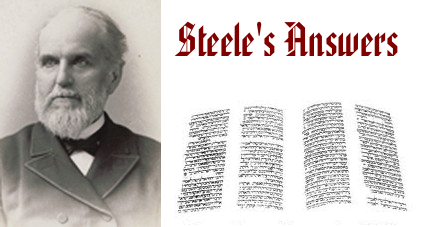On this ground the pagans need no probation after death. They who by living up to their best light have put on the elements of Christ's character have the essential Christ, though ignorant of the historical Christ.
Jesus, in that most sublimely awful passage which ever fell from his lips, represents the decisions of the day of judgment as turning not on the treatment of the historical Christ, but on the treatment of his representatives, the hungry, the thirsty, the sick, the naked, the homeless child, the prisoner. Every one has a chance to become acquainted with the essential Christ and to reject or to assume and manifest his spirit. What a throng of good Samaritans, of humble peacemakers, of humane men and tender-hearted women in the humble walks of life, whose names the trump of fame never sounded, will be surprised to hear that they have ministered unto Jesus Christ! They lived in fear of losing heaven and died in doubt of their destiny.
Righteousness is conformity to the law of God; holiness is conformity to his nature. Righteousness, if possible without a knowledge of Christ, as in the case of pious pagans living up to their best light, affords little peace and less joy because of grave uncertainty and painful doubt. It is a scheme of justification by works and not by faith in the personal Christ. Repeated failures lead the thoughtful moralist to utter the despairing cry, "O, wretched man that I am." He is like a man attempting to cross the gulf of perdition walking on a single hair stretched from mountain top to mountain top. Having no balancing-pole, he is constantly in unstable equilibrium, and full of fear lest at every step he may lose his balance and irrecoverably fall into the yawning chasm. He cannot cancel one sin by meritorious works. He can find no day in which he can do overwork and thus compensate for past sin. The law claims the full revenue of his powers every moment. But the righteousness which results from faith in Christ has grounds for both peace and joy in various degrees. The justified person is required to keep the whole law and to be perfectly holy. To such is given the command, "Be ye yourselves holy in all manner of living, for I am holy" (I Pet. i. 15, R. V.). Every soul is required to make a complete consecration to Christ and to turn away from every known sin.
— from Jesus Exultant, Chapter 7.

No comments:
Post a Comment